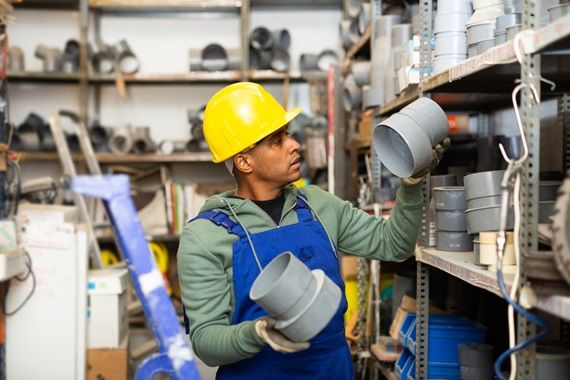Expression: Who is Karim Zoghb?
Karim Zaghib: I have many hats… I am an inventor, entrepreneur, and researcher who specializes in the transmission of energy and, in particular, in lithium-ion batteries. Technology used in our daily lives for laptops, phones, computers, electric cars… I am the author of 600 patents and my team at that time sold 62 licenses worldwide. With my team, we invented a lithium-ion battery based on iron phosphate … Today, we have a lot of companies using this technology, such as Tesla Motors or even in China today, by number one worldwide, CISIA Pied, a Chinese company And others … In fact, this technology is very safe and inexpensive. As you know, today the whole world is working to improve these aspects of battery safety, especially the risk of explosions. This technology also has many applications that can be used for energy storage. It is a mature and affordable technology in terms of production costs.
Are you a product of the Algerian school?
Absolutely. She went to the Algerian school when she was at the top. I went back to primary school in 1968. There it takes me back to a beautiful time when things were simple. The school was sacred at that time. It was our life, our home. The teacher was the first example to the community. So everything was based on humility and respect. At that time, only persistence and perseverance can help you achieve your goals and be successful. But it was all based on respect.
Can it be said today that this training in the Algerian school was a good basis for your success?
If today I am asked to summarize the conditions or reasons for the success of my career, in a few words, I would say that it is thanks to the first six years of school. Because this education was based not only on learning, but also on other very important criteria, such as discipline, solidarity, simplicity and creativity. At that time, in 1968, there were no advanced pens and tools today. We, rather, were glass vials by way of inks, water, and ink in bags imported from East German countries, the German Democratic Republic, or the USSR, which we mixed on their own to obtain writing ink at the correct dose. For the pupils, it was blue or purple, and red for the teachers. But solidarity prevailed, sometimes we had a common inkwell between two or even four students. There was also a small sprig or stick, as a pen holder, which at that time was called a “thorn”. We took care of her, gently scrubbed her with an abrasive, and returned her clean to display proudly in front of the teacher and all the other students. And we only have three notebooks in total and for everything, one notebook of 32 pages, another of 96 pages and another of 120 pages for the whole year. The school gave us the schoolbag, and we were all wearing the same aprons, the same color with our first and last names… I also remember that despite the few means at our disposal, we were clean. However, most of us only wore one outfit all week. Our mothers washed and dried them at night so we could wear them in the morning. Bath, bathroom, that was twice a week with our parents and the haircut was very important. When we got home, it was also fun, because we knew we were going to enjoy the two national dishes, couscous and “heleb borbucha”, a type of big black couscous made with barley. What memories, they carried me away. This is the first time I’ve talked about it with a journalist. I am very impressed with it.
You are a member of the Renewable Energies Authority in Algeria, what is your vision for this transformation that the country should work on?
Indeed, Noureddine Yassa, the commissioner of renewable energies, called me to sit in this institution a year and a half ago. I am a member of the committee responsible for the topic of renewable energies and in particular, the necessary transition of energy through the use of solar and wind energy sources.
and transport electrification, which remains affordable for Algeria, as long as a real strategy is identified. This explains the strategy of the Algerian state’s openness to the inclusion of national competencies and those located abroad. Having said that, there are groups that are working hard and making a lot of effort in Algeria. I’ve been in the energy sector for 35 years, including 27 years with a Canadian company called Hydro Quebec.
It is the equivalent of the French company EDF. It is the largest electric company in North America. It is on top of the world in terms of hydropower. That is, it produces 100% hydroelectricity. So I’m in a good position to talk about energy.
Compared to Algeria’s renewable energy potential, what solutions do you recommend?
I studied the geography of Algeria a lot. We have private supermarkets in the south. On the other hand, what is needed is a diversification of the energy portfolio. I always take the example of Norway, a country I know and studied, which is very vital. A country that, by relying on oil and gas, has been able to build a green economy and world-class potential based on blue energies. We should avoid investing in new major infrastructure, such as airports, roads, etc… because Algeria has already invested in cities and infrastructure. So there are cities, roads and airports where there is gas and oil. This is where I will put my huge solar gardens. This is called the Great South, where there are large solar gardens. Then we get to the north. Where frequent power outages. We should think of the Nano network, or the Micro network, or even the hybrid network. In the case of small villages, where it is difficult to access, it is necessary to choose the Nano network. You have to put the panels and equip them with batteries, then the house becomes independent. As for the small grid, in a new district or village, it is quite possible to create solar energy with storage, with a capacity of 3 to 16 kW. As for large cities, such as Algiers, where the network is saturated during peak periods of consumption, we can choose to store energy, by creating storage areas. Nor should wind power be neglected, especially in regions where wind power is beneficial. We must quickly think of a strategic plan to make Algeria independent of fossil fuels, gas and oil by 2050. We must start immediately.
Are you ready to bring more to Algeria, in terms of technological advances or projects related to your inventions?
Algeria’s natural and human potential is greatly appreciated internationally. We have mineral reserves of high value at the international level. If you don’t have metals, you can’t easily invest in phones, computers, or electric cars. So my idea is to bring this project that I am developing in Canada to Algeria. And we’ll start from the mine to the transmission of energy and everything in between. And it’s not just words. I’ve already had to create large-scale projects in different countries, and I can tell you that it can only work. However, there are guarantees that must be put in place in order for the project to be successful. Hence the selection of the people and parties with whom this project begins. People with integrity and solid who do not touch corruption, who choose transparency, with shock teams, licensees, good budgets with good governance also. They were also good observers to monitor the project. As we say here in Canada “on time and on budget”.
How do we address the brain drain in the case of Algeria?
We should consider the Chinese approach or the Chinese example. Thirty years ago, all Chinese had only one idea, to rally the United States, Canada, etc… In the face of this situation, China developed a profitable strategy, by investing in laboratories, strengthening teachers, and infrastructure at the university… It went further From that to give big rewards to professors and students, who conducted and published research…From there, it developed a motivational policy regarding the Chinese diaspora, through various formulas. Today, young Chinese no longer go to the United States as before.
Are you satisfied with your performance at the Renewable Energy Authority?
Yes, I am very satisfied with my services. But, where I am not satisfied, it is at the level of communication with the officials of the state. Let me give you the example of Canada, a minister or prime minister is constantly calling you, giving you his number. Reaching out to the top officials of the state is very easy. I’ll give you a Sétif example where I had a smart, independent farm project that took 3-4 months to request a hearing. For the final we were able to get the viceroy’s secretary, we ask for her name, we were told it was confidential. The ‘decision maker’ should be easily accessible. This is also the speech of President Tebboune. I think the opening is there, you just need to find the appropriate means and methods.

“Music guru. Incurable web practitioner. Thinker. Lifelong zombie junkie. Tv buff. Typical organizer. Evil beer scholar.”





More Stories
Consumers want to boycott Loblaw grocery stores in May
Delays and flight cancellations: Here are the US airlines you should avoid
Le Rouge Vin is officially leaving the Hôtel Gouverneur